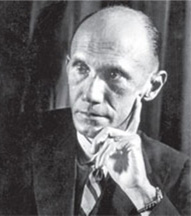The Dutch surgeon who loved Sri Lankans
by Amal Hewavissenti
Reginald Lionel Spittel was a Dutch medical professional who lived in
Sri Lanka and who had a boundless attachment to the people and landscape
of Sri Lanka. His intense enthusiasm in delving into the Peculiar
lifestyle of the Sri Lankan aborigines (Veddahs) compelled him to visit
jungles continually and call on Veddah people. He endeavoured to walk in
hardly accessible wilderness in spite of his severely injured left hand.
R.L. Spittel's works Vanished Trails and Savage Sanctuary deal fairly
with his own liberal ponderings and studies on life and culture of the
Veddah people in Sri Lanka. Apart from that, his highly readable
narrative "White Wild Boy" is indeed a graphic representation of life in
the wildness.
|

R.L. Spittel |
Spittel managed to have hairbreadth escapes from fatal accidents on
his perilous walks in the jungle out this only increased his
never-ending passion to explore and haunt the jungle.
This clever surgeon ever stayed poised to direct his sympathy and
encouraging support for the poor people living amidst the atrocities of
nature and especially Sri Lankan aborigines (Adivasi) living in hardly
accessible regions in Vanni.
He endeavoured to put across his premise that Sri Lankan Veddah
people typically constitute an integral part of our community and by no
means should they be considered outcasts or primitively under developed
people.
Apart from that, he established his premise that Sri Lanka and India
were on the same geographical location during prehistoric times and
later Sri Lanka was separated from India through the process of sea
erosion.
According as Spittel says, Veddah people immigrated to Sri Lanka from
India thousands of years previously when Sri Lanka and India existed as
one country. He believed that Veddah people in Sri Lanka bear
anthropological affinities, to some extend, to certain cultural traits
of Indian communities.
Yet, he took particular care to welcome other versions or
interpretations regarding the origin of Veddah people in Sri Lanka. The
life of this surgeon itself is filled with interesting episodes.
His father Frederic George Spittel was the regional surgeon for
Tangalle but he had served in a number of districts such as Puttalam,
Hambantota and Kurunegala. Young Spittel was much more exposed to the
life and people of Sri Lanka as he had gained more opportunities to
travel to various regions with his father.
Spittel married Calribel Vendette Francis the daughter of G. Vendette,
a brigadier. His role as a lecturer at Ceylon Medical College and his
contribution at Colombo General Hospital was a national mission.
It is said that Spittel's treatments had a surprisingly magical
effect on the patients who began to recuperate on the first dose of
medicine administered by him.
An occasions he was seem nursing a Veddah child in Colombo with the
same genuine love he would have nursed his own child with.
His contribution to Sri Lankan medicine is rated superb. His
inventions, explanations and varying researches have been immortalised
in the history of Sri Lankan medicine. The insightful ideas and
discoveries with his own conclusions still remain unchallenged.
R.L. Spittel's impressive discoveries in the field of surgery are
recorded in his books titled Surgical Ward Work, Essentials on Surgery
and Framboesia Tropic. These books were subsequently used as authentic
hand books by medical students during the decades 1920-1930.
He assumed duties as the chief medical officer in charge of the
accident ward of Colombo General Hospital. Furthermore, he was
recognised to be an internationally reported surgeon who was
consequently honoured with the award CBE for an enlightening article
published in the British Medical Journal.
In addition, Spittel practically pioneered blood transfusion in Sri
Lanka and his suggestions based on new methodologies on treating a
wounded patient were completely effectual.
Christine Spittel Wilson, his one and only daughter too was a born
writer who had inherited much of her father's calibre for recording
personal experiences picturesquely. She compiled her father's biography
with all the exciting events in his life in Sri Lanka.
Spittel's novel "The White Wild Boy" is woven round an actual episode
in the life of a Dutch boy marooned on an island (Sri Lanka) when his
ship has been ripped apart by a typhoon.
He wrote about his dramatic experiences in Far Off Things, and Wild
Ceylon - two books that were dedicated to his father Frederick George
Spittel who impressed on young Spittel an inexhaustible love for jungle.
Christine Spittel later published his book titled "Leaves of the
Jungle" - a poetic recording of his own impression of life in
wilderness.
The surgeon launched an environmental research in the form of a
magazine in 1937. The magazine titled "Loris" was published chiefly to
raise awareness about the vitality of jungles and the wild animals and
to highlight man's responsibility of preserving them. He was mainly
instrumental in the establishment of the wild life park of Wilpattu.
He loved not only the jungle but also the animals in it. For the
first time, he declared that protected jungles, tanks, waterways are
essential for the balance existence of wildlife and even went to the
extent of delivering public lectures on the importance of wild animals
and jungles for human existence.
This great man who showed himself in different forms - as a poet, a
surgeon, a writer, a humanist and lover of jungle breathed his last on
September 3, 1969. |

